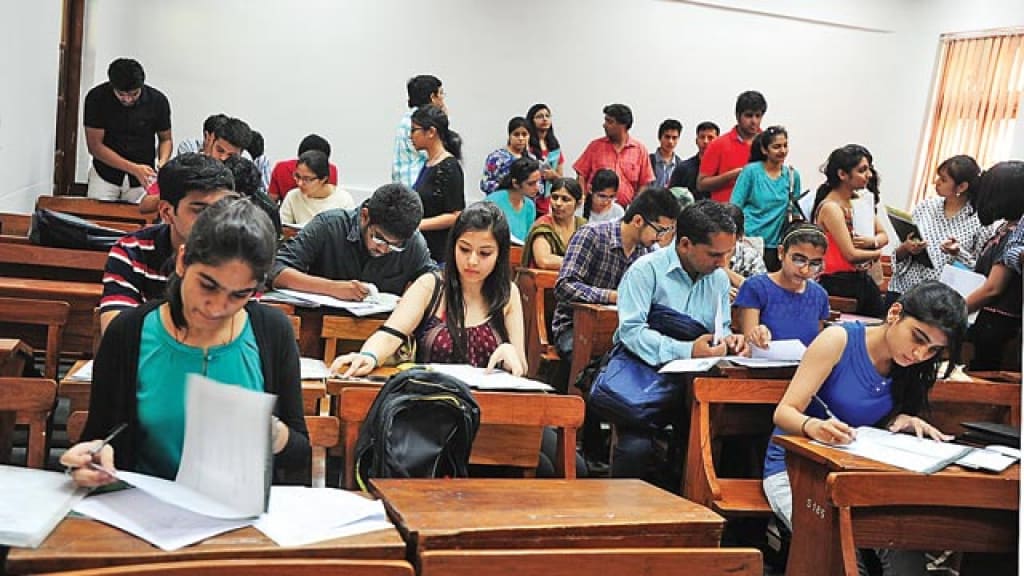"Happiness Classes" In Indian Schools
And Why America Needs This

An experiment is taking place in Delhi's public schools: classes that focus on emotional well-being, instead of academic success. Due to the high education standards and the very limited spaces in top-tier universities, Delhi's Education Minister Manish Sisodia has been running this program to make sure the mental health of young students doesn't deteriorate from stress. Sisodia has stated that the system is suppressive to student's creativity and a major contributor to India's high suicide rate amongst students.
These "Happiness Classes" last for 35 minutes and implement meditation, creative exercises, and other activities. And for very obvious reasons, the students (shocker shocker) love it! With over 1/4 of Indian students suffering from depression or anxiety, reports are showing that kids across the board in these schools are considerably happier, more productive, and more willing to push themselves without authoritative pressures. It seems that just the fact they don’t need to worry about remembering a book for the class lifts a huge burden off of their shoulders for that half-hour.
There is however, a concern over the sheer number of kids occupying the classrooms. This program is being demoed with over one million students, and some classrooms have up to 80 students packed into them. This is could lead to some issues simply due to a single teacher not being to handle so many students, but even many teachers are saying that they themselves are benefitting from these courses. And with a rising federal budget for education, there is a possibility for more schools to be built to accommodate the large student body.
And yes, the United States could learn a lot from this move. Suicide is the second leading cause of death amongst students, and some statistics report that it's climbing. During high school, the pressure was on to get good grades, go to college, and get a degree. If you don’t do exactly that, you will essentially fail at life and never be secure. Considering I went to a specialty school that aimed towards student potential and this idea was still pushed, it is a serious problem. Our education system doesn't properly allow for students to relieve stress so they can enjoy learning instead of dread it. Allowing constructive and creative outlets for students is the most consistently effective method for keeping students interested. Naturally if kids are being forced to go somewhere that drills a single narrative in their heads, they will tend to not be happy in that place. It's common sense. Is the Indian education system perfect? No. Is the American education system the worst? No. But if we want to make sure that our students start tomorrow's businesses and become tomorrow's politicians, we have to emphasize the importance of mental health and fix those persistent issues. I know people who have attempted suicide because of the workload and pressure that schools put on students. Incredibly intelligent and driven individuals who just couldn’t take it anymore. I don't want that for anyone, and odds are nobody else does either. Is it a coincidence that Charter Schools and Magnet Schools consistently have higher rates of future educational and financial success that public schools? Considering they focus on specialized programs that keeps students interested in their fields of study, and prepare them for either employment or a continuing education, it really isn’t a coincidence.
I think our country can learn a lot from what Delhi is doing for its students right now. Our education system needs some fundamental changes, and this would be a relatively easy place to start the process.
If you liked this article, check out my other work and follow me on Twitter @thejpfrattini!
About the Creator
J. P. Frattini
Culture, music, politics, art. It's all fair game to me
Follow Me on Twitter: https://twitter.com/thejpfrattini






Comments
There are no comments for this story
Be the first to respond and start the conversation.